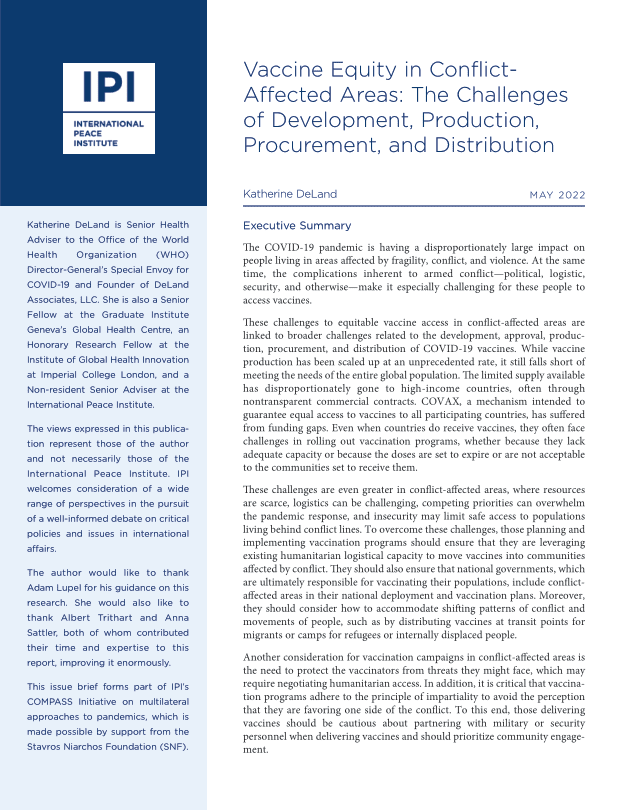Executive Summary
The COVID-19 pandemic is having a disproportionately large impact on people living in areas affected by fragility, conflict, and violence. At the same time, the complications inherent to armed conflict—political, logistic, security, and otherwise—make it especially challenging for these people to access vaccines.
These challenges to equitable vaccine access in conflict-affected areas are linked to broader challenges related to the development, approval, production, procurement, and distribution of COVID-19 vaccines. While vaccine production has been scaled up at an unprecedented rate, it still falls short of meeting the needs of the entire global population. The limited supply available has disproportionately gone to high-income countries, often through nontransparent commercial contracts. COVAX, a mechanism intended to guarantee equal access to vaccines to all participating countries, has suffered from funding gaps. Even when countries do receive vaccines, they often face challenges in rolling out vaccination programs, whether because they lack adequate capacity or because the doses are set to expire or are not acceptable to the communities set to receive them.
These challenges are even greater in conflict-affected areas, where resources are scarce, logistics can be challenging, competing priorities can overwhelm the pandemic response, and insecurity may limit safe access to populations living behind conflict lines. To overcome these challenges, those planning and implementing vaccination programs should ensure that they are leveraging existing humanitarian logistical capacity to move vaccines into communities affected by conflict. They should also ensure that national governments, which are ultimately responsible for vaccinating their populations, include conflictaffected areas in their national deployment and vaccination plans. Moreover, they should consider how to accommodate shifting patterns of conflict and movements of people, such as by distributing vaccines at transit points for migrants or camps for refugees or internally displaced people.
Another consideration for vaccination campaigns in conflict-affected areas is the need to protect the vaccinators from threats they might face, which may require negotiating humanitarian access. In addition, it is critical that vaccination programs adhere to the principle of impartiality to avoid the perception that they are favoring one side of the conflict. To this end, those delivering vaccines should be cautious about partnering with military or security personnel when delivering vaccines and should prioritize community engagement.


